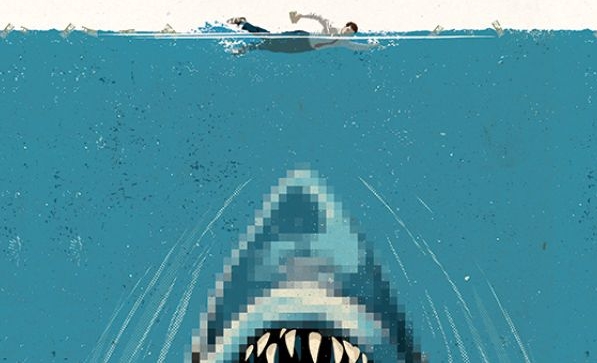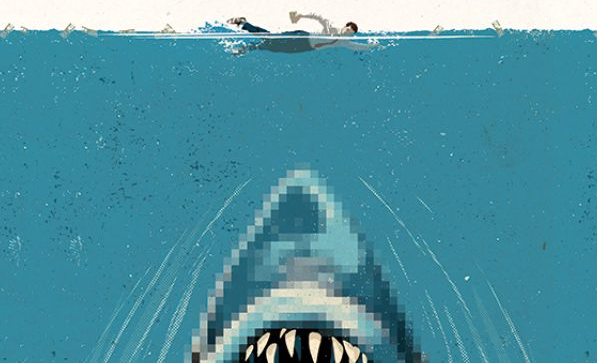
 The personality trait of a disruptive marketer is centered on what, according to Daniel Gilbert, is believed to be the brain’s greatest achievement: “its ability to imagine episodes that do not exist in the realm of the real, and it is this ability that allows us to think about the future.”
The personality trait of a disruptive marketer is centered on what, according to Daniel Gilbert, is believed to be the brain’s greatest achievement: “its ability to imagine episodes that do not exist in the realm of the real, and it is this ability that allows us to think about the future.”
The ability to imagine a future state is the human brain’s most important attribute. And it’s the thing we need to use more of—ignoring the obvious and conventional—in the world today.
Google’s Eric Schmidt and Jonathan Rosenberg noted one way they ascribe to this “future state” forward-thinking philosophy: people who work at Google don’t do it into silos anymore. That would be too conventional in terms of the twenty-first-century definition of a knowledge worker. According to their book How Google Works, [Google employees] are multidimensional, usually combining technical depth with business savvy and creative air. In other words, they are not knowledge workers, at least not in the traditional sense. They are a new kind of animal, a type we call a “smart creative,” and they are the key to achieving success in the Internet Century.
We know that the brands of the future will look a lot different from the brands of today. However, many brands are taking a long time to figure out exactly what they will look like. And all the while, the clocks are ticking and the business models are being burned to the ground. We know that over the next twenty years, machine intelligence will play a much larger role in value creation. Mobile devices and the Internet of Things will change how we engage with others.
It is only by algorithmically programming all the routine processes that organizations will be able to free up the creative space for differentiated and innovative offerings. The time previously spent “managing machines” and pouring resources into operations will be re-purposed into creative output. This is one reason companies that put more emphasis on free time to explore ideation and innovation have an added advantage in the new economy. Reshaping the economy from one based on knowledge to one based on creativity also involves reshaping the way marketing will work.
Disruptive Marketing…
Allows you to see things others cannot because they can’t separate themselves from their innate biases—that is, what they perceive as “the right kind of marketing” and what might be unchartered territory as defined by the data.
Makes it okay for you to be curious, to daydream, to be enthusiastically inefficient, and to allow your mind to wander and tinker with inconvenient facts.
Is about not following the rules of conventional marketing but, rather, establishing your own rules because the new norms of the creative economy demand it.
Questions everything you learned from primary school to business school because linear patterns don’t make up the real world we inhabit or the one we must create as a result of technology-inspired behavior.
Does not explain away data-centricities with excuses like “bad batch of data,” “small sample size,” “not enough data,” and “that’s not our target audience because I have an innate bias that it shouldn’t be.”
Understands the allure of conventional marketing and the challenge of leaving it behind to forge a new path using disruptive thinking and actions. But the latter can unlock opportunities usually hidden right in front of us that the former is reluctant to identify.
Is for those who inspired it: data punks, designers, creative hybrids, growth hackers, bandits, delinquents, and business rebels of all shapes and sizes who will reconfirm your knowledge so you can help bring it to others in your organization, whatever the objectives (tech products, consumer packaged goods, industrial design products, innovative ideas, politics, new ways of thinking, philosophies) and whatever you would like to apply it to.
Helps empower everyone through a rapid and radical time of business turbulence, when if you don’t lead the change and transformation, others—in this case your customers— will lead it for you.
Rewards those who find and seek new opportunities in creative ways because they have more diligence than intelligence.
Helps overcome preconceived ideas about what makes marketing work by testing and trying things that are smaller, subtler, and more immersive yet more effective than million-dollar campaigns by big companies like Nike and Coca-Cola.
Is for thinkers, doers, questioners, and subversive naysayers who realize the most lethal phrase in business is, “But we’ve always done it this way.”
Written by Geoffrey Colon at Branding Strategy Insider